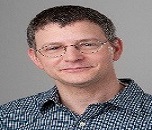Doron Lavee
Pareto Group Ltd, Israel
Title: Are economic tools preferable to direct regulatory measures in achieving environmental goals?

Biography:
Doron Lavee holds a PhD in Public Economics from the Tel Hai College; an MA in Economics and an MBA in Business Administration and Economics from the Hebrew University. He is a Member of the Department of Economics and Management at Tel-Hai Academic College. He also serves as a Partner and General Manager of Pareto Group Ltd. He is a well-known expert with over 22 years of experience in economic and environmental consulting, financial advisory and strategic consulting in various fields, including issues related to economic efficiency and the periphery. He has extensive experience in managing complex projects and large-scale environmental economic consulting and conducting projects for the public and government sectors, including government ministries, local authorities, government corporations and public agencies.
Abstract:
Regulators around the world are dealing with a fundamental dilemma. On the one hand, modern economic activity raises the standard of living, but on the other hand, it creates many environmental hazards that harm our quality of life. To balance these controlling effects, they are interested in bringing about social equilibrium and for the value of marginal damage to be equal to the cost of reducing it. The excessive investment will result in too much damage to the standard of living, and on the other hand, an under-investment that leaves us with excessive risks. The way to deal can be through direct command and control (CAC) or market-based economic tools. There are, of course, other essential tools, such as education and information that will not be covered in this article. Over the years, the use of economic tools in the Organization for Economic Co-operation and Development (OECD) countries increased at the expense of direct regulation, but in Israel, there is still a tendency to use direct regulation. However, since the beginning of the 21st century, there has been an increase in the use of economic tools in Israel as well. The article examines whether it is better to increase the use of economic tools at the expense of direct regulation. The examination is based on six case studies from various environmental fields in Israel. The results of the research reinforce the argument that economic tools can achieve policy objectives more effectively while driving the market to environmental improvement. However, it is almost impossible to make a clean comparison from other influences, such as the development of environmental awareness over the years, the strengthening of environmental regulation and the government's determination to achieve advanced environmental goals, especially given the international commitment to Israel's entry into the OECD. Therefore, the results should be seen as supporting evidence and not as absolute proof of the priority of the economic instruments.